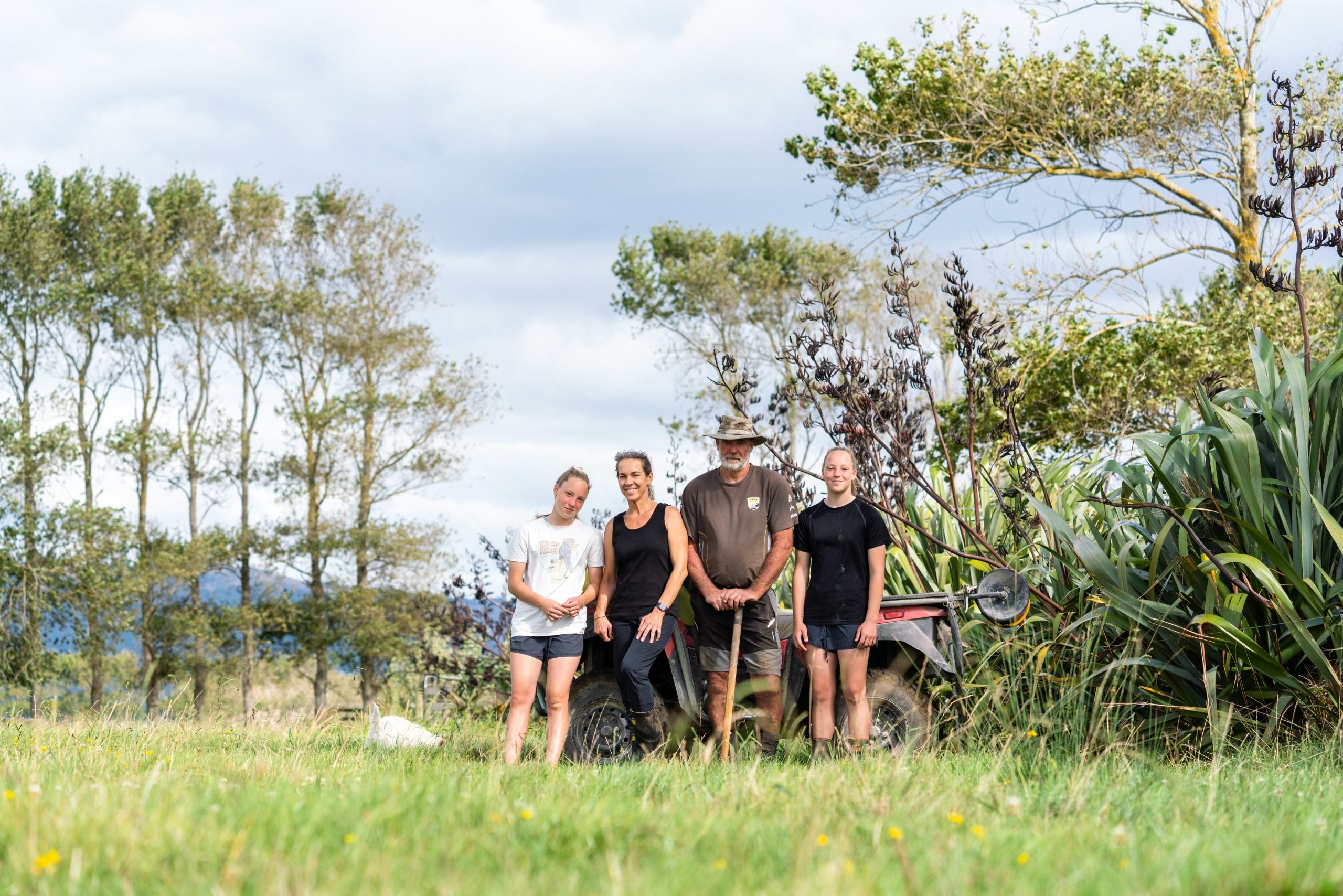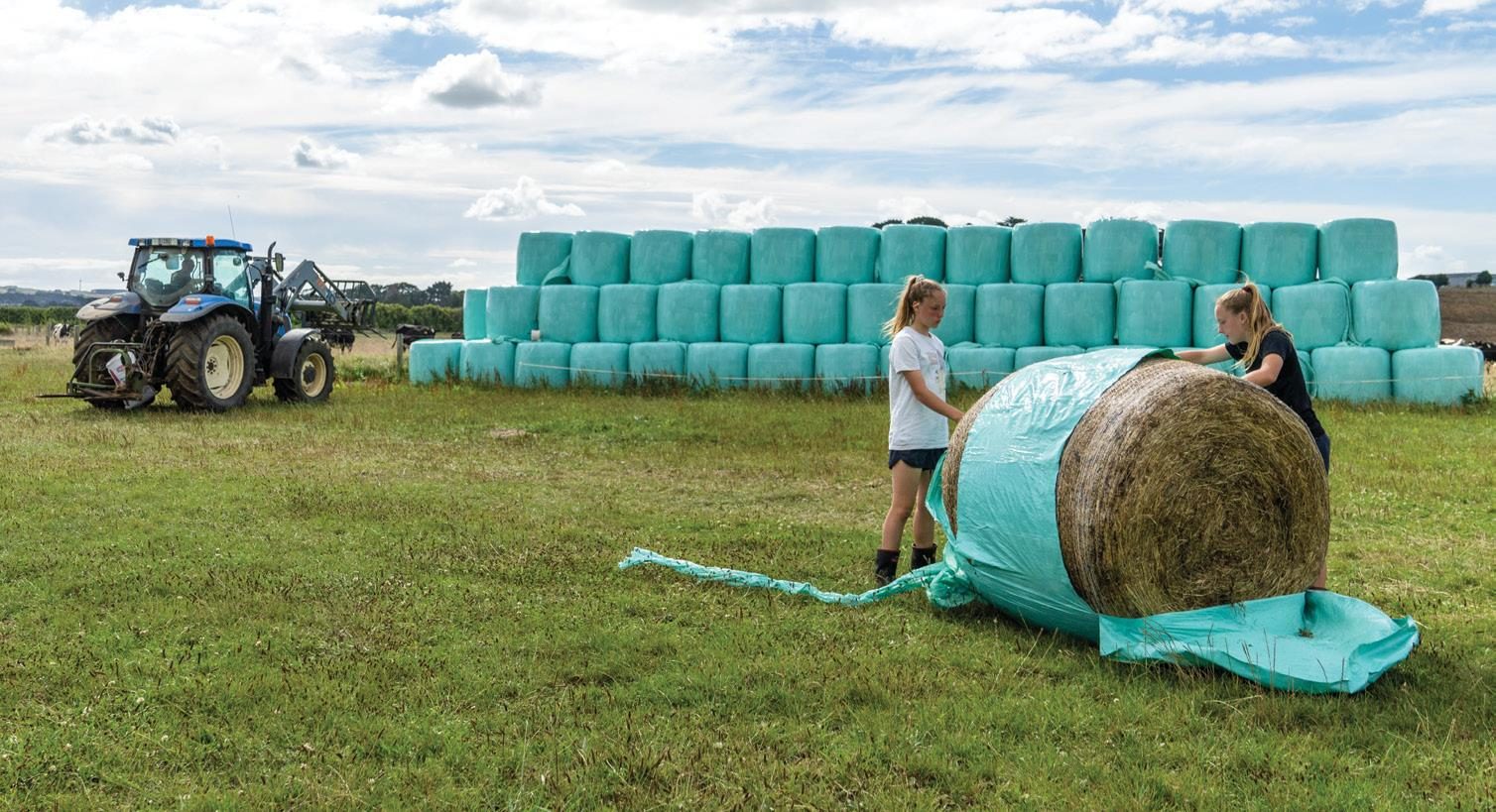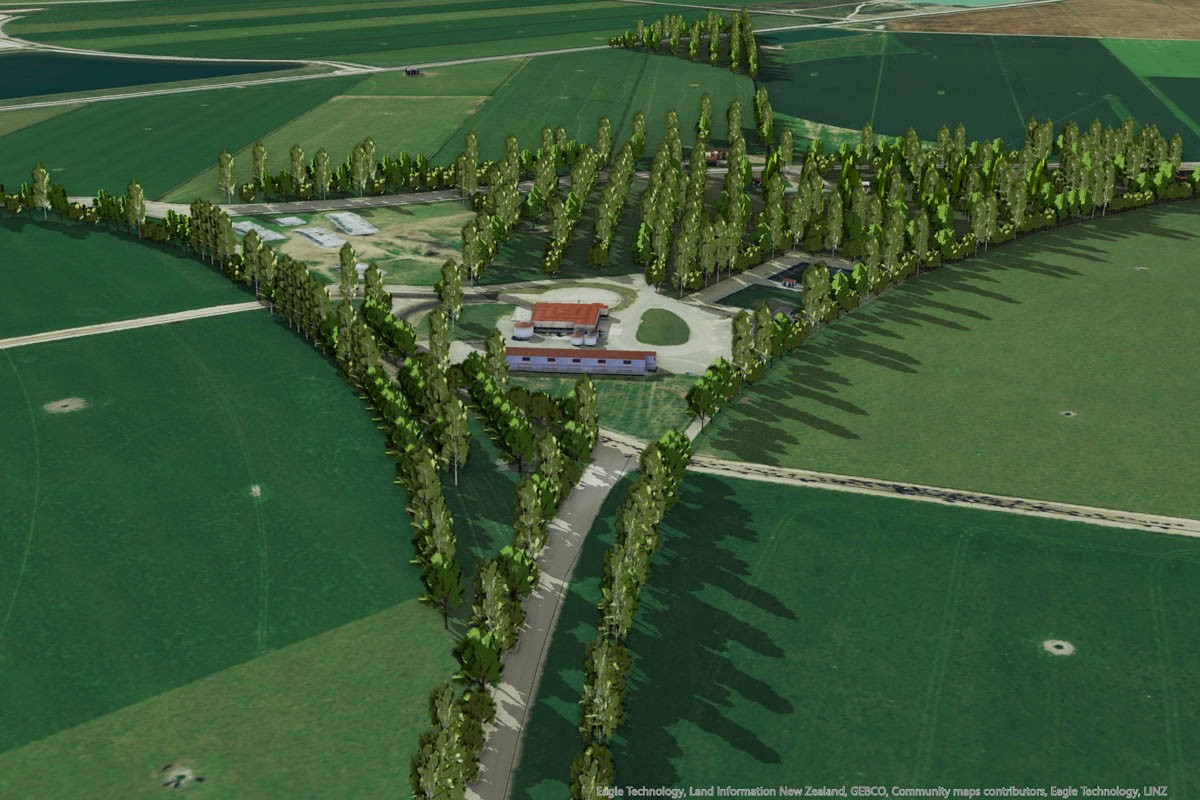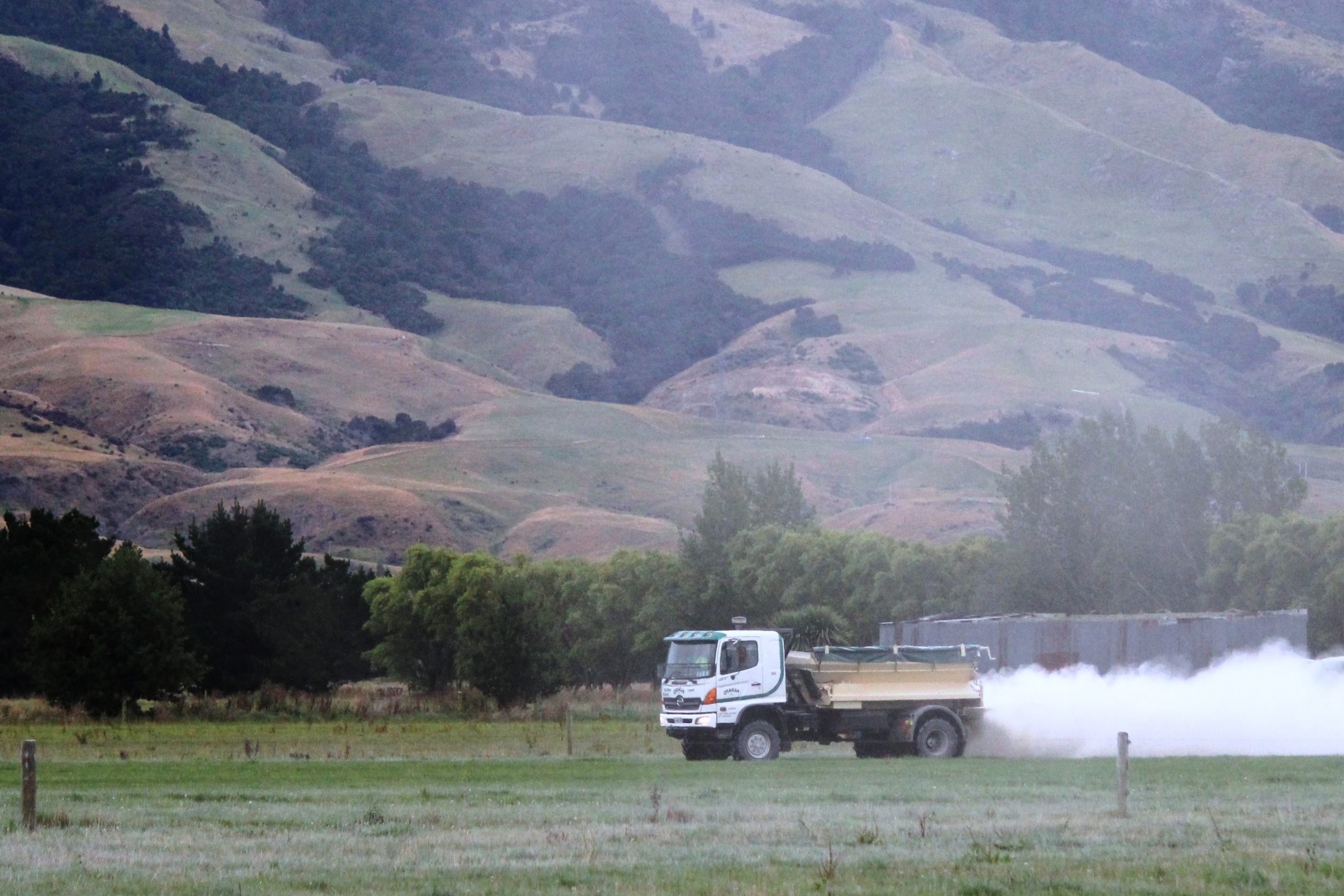Organics a way of life
The birth of their twin daughters 13 years ago got Craig and Stephanie Maunsell interested in making their farm a safe place for humans and animals, setting them down the path of organic farming. Anne Lee reports.

They don’t do it for the premium, it’s certainly not what drives them, but organic dairy farmers Stephanie and Craig Maunsell say it goes a long way to helping their low intensity farming operation be a sustainable family business.
They’d been concerned at the outset of the Covid-19 pandemic that an economic downturn would follow and people wouldn’t be able to pay for organic products in key offshore markets.
“But it looks like demand has actually increased as people become focused on their health and want to know where their food comes from,” Stephanie says.
The couple milk 230 cows at a stocking rate of 2.1cows/ha with just part-time help a couple of times a week.
“We’ve taken the pressure off the cows, the environment and the people – us,” Stephanie says.
The pair started looking at farming differently just after their twin daughters were born 13 years ago.
“I guess it was when the girls were very young and were with us out on the farm quite a lot.
“We wanted them to be able to roll around in the grass without worrying about chemicals, we wanted it to be a safe, healthy place for them,” she says.
Stephanie was also embarking on a degree in natural medicine and they were looking closely at their own health. For them, it just made sense to carry that thinking through to how they farmed. They started using natural health products for the cows and have never used urea.
Craig had leased a runoff from his uncle years before and he had stipulated no urea as part of the lease because he saw it as poison, Stephanie says.
They were also won over by alternative fertiliser practices after buying a block 13 years ago from an elderly neighbour who had put on very little in the way of fertiliser, apart from dolomite.
“We had to do a lot of fencing on the place when we bought it and when we were digging in the posts, we couldn’t get over the worms and deep, rich soil – you felt guilty putting the spade in the ground – it was moving there were so many worms.”
It made them reconsider what they were doing on their farm and they shifted to using dolomite and the Albrecht Kinsey method for fertiliser recommendations.
“We started to see changes here – paddocks were draining better, we had more soil biology, a lot more worms and the grass was growing better,” Craig says.
They don’t use superphosphate and instead use slower releasing reactive phosphate rock (RPR) and guano. Stephanie says that contrary to common beliefs, organic farmers do use standard fertilisers which bear the certified organic tick.
Fertilisers such as sulphur bentonite, potassium sulphate, cobalt sulphate and other trace minerals such as boron and selenium are used but Stephanie and Craig use no nitrogenous fertiliser. They’d also started using more diverse pasture mixes and about six years someone suggested that with all they were doing on the farm they should look at becoming certified organic.
“One of the biggest hurdles though for doing that was animal health and mastitis.
“We didn’t have a problem with mastitis but I didn’t know what you’d do about it if you had cows with it so I started doing research.”
“Once I started using alternative methods on cows showing any symptoms and they worked, we thought ok – let’s go for certification,” Stephanie said.
They did one season of the transition on their own and then as Fonterra suppliers were able to take on an organic contract.
“The whole community of organic suppliers really throw their support around you and Stuart Luxton (Fonterra’s organic supply manager) has been fantastic.
“When we went along to discussion groups we got so much help from others in the group – we had so many questions and there were always people willing to give you advice from their experience.”
The certification process and annual auditing is extremely stringent.
“One of the best pieces of advice we got from Stuart and others right at the outset was to always seek permission and never redemption because redemption is never given.
“If we’re ever looking at using something new and it’s not already on our approved list we put a query into Biogro and they come back to us very quickly.
“And that’s the advice I’d give to anyone else – always check and then double-check what you receive in an order or buy is that approved product.
“Read the labels, check and double-check.”
Most of their animal health remedies come from Homeopathic Farm Services and True Health.
Phyllis Tichinin and US-based vet Dr Paul Dettloff from True Health have given advice, with Paul visiting New Zealand and speaking to Fonterra’s organic suppliers on a number of animal health issues.
The tinctures and remedies often include traditionally used plants and plant extracts such as garlic, eucalyptus, echinacea, goldenseal and even a traditional Native American remedy Poke oil from Phytolacca used for udder health.
They’re now in their second season as certified organic suppliers and Stephanie says they’ve never had a cow needing emergency veterinary treatment for mastitis, or any deaths from it.
“We strip a different quarter each milking before cupping cows to check for any early signs of problems so we can be straight onto it early.
“Normally I’ll use a product called Savvy Udder – which has nine essential oils in it – and that takes away swelling and inflammation.
“We also use a tincture that we administer through the vulva – as it’s absorbed through the mucous membrane.
“Occasionally we’ll take a cow out of the herd and put a couple of beef calves on it if it’s in the spring, but just like a conventional farmer if a cow needs antibiotics we’d take her out of the herd and treat her.
“Animal welfare is at the absolute top of our priority list.”

Their bulk somatic cell count averages 150,000 cells/ml, and even though that’s still great quality milk, it’s something Stephanie took a bit of getting used to.
“We were used to sitting around 60,000-70,000 and we’ve got a drawer full of certificates but I think we have to look at things a bit differently and that’s a natural response.
“Overall, I think our animal health has improved. The cows get a mixture of apple cider vinegar and triple strength garlic in the trough to help with their immune system.
“We boost it and give them a bit more at this time of the year because we find it helps stop the flies biting them.
“The flies are still there but they don’t bite them and bother the cows so we’re not getting cows kicking off the cups or getting agitated.
“Conventional farmers around here use it too.”
Calves are orally drenched monthly with a herbal digestive drench from Homeopathic Farm Services that contains remedies such as garlic, Harakeke, Kormiko, black walnut, wormwood and seaweed.
“We get (nutritional) scours in the new calves sometimes but I use Koromiko leaves. I either rip a few up and put them in the calf’s mouth and then put it on the calfateria to get it to swallow them or chop up the leaves and make a tea and put that through the feeder.
“It’s high in tannins and really works well. I use it on the kids too if they get a stomach upset or a 24-hour bug.”
Calves also get a mix of kelp, humates and hay along with milk and ad lib water.
“What you find with any of these things – whether it’s the calves or udder health in the cows – is that you have to be observing all the time.
“You have to watch each cow every day and really know what’s normal and what’s not for each animal.
“Where a conventional farmer might drench the calves every six weeks to a couple of months, we’re doing it every month on the dot.
“For us there’s often no quick fix, no pill you can give straight away, so we’re more about prevention, being really observant and keeping up with the things that keep up a strong immune system,” Stephanie says.
The couple are strong believers that good health starts with the soil and they’re focused on creating great soil ecosystems where nutrients are cycling thanks to soil biology.
“We’re extending the effluent lines so we can spread effluent across more of the farm because that’s a great way to get nutrients back into the soil and should help reduce fertiliser bills.
“We’re also sowing more diverse pastures – including some plants that are more deeply rooting,” Craig says.
The pasture mix included ryegrass, white clover, red clover, medic (legume), cocksfoot, Timothy, plantain, chicory and lotus major.
This season they’re sowing a AgriSea Mix from AgriSea and Wesco Seeds that includes a blend of three white clovers, three red clovers, prairie grass, ryegrass, rocket, chicory, sub clover, Persian clover, fescue, phalaris, plantain and medic.
“I think the diverse mix including deeper rooting plants is helping get at nutrients that are further down in the soil, but it’s also helping through the drier periods as well as the wetter times – we’re getting better drainage and better drought tolerance.
“At the moment the cows are loving the chicory and lotus major and we’re finding that the more diverse pastures are giving us better cover through the whole season – different plants are more prevalent at different times, he says.”
Last season was a record year for Fonterra’s organic farmers in terms of payout with $10.20/kg milksolids (MS).
Stephanie says that although the per kg milksolids payment side of the equation is higher, like her and Craig, most organic farmers aren’t breaking any records when it comes to the kg of milksolids they produce.
“Some of our costs are probably less – we don’t use any supplement for instance, except a bit of organic hay we use at dryoff – but some of our costs are probably higher.
“Fertiliser for instance can be expensive. We hardly need to call on the vet, especially when it comes to treatment, but we do spend money on animal health as far as preventative treatments and herbal remedies go.”
Overall the margin, or margin spread around the average, is likely to be similar to the margin and spread in margin for conventional farms.
“People are willing to pay more for organic dairy products and so that premium helps when it comes to running a system like this.
“I don’t think anyone would do it just for the premium though, you have to be committed to the whole way of thinking, the whole holistic approach from soil right through to human health.
“It’s a way of life.”
Farm Facts
Farm owners: Craig and Stephanie Maunsell
Location: Otaua, near Waiuku
Area: 97ha milking platform
Support block: 45ha leased
Cows: 230 cows – Friesian cross
Production: 85,000 MS/year
Farm dairy: 30-aside herringbone
Supplement: Nil bought in
– silage from surpluses on milking platform fed back during deficits and to extend the round
Farm working expenses: $3.70/kg MS





